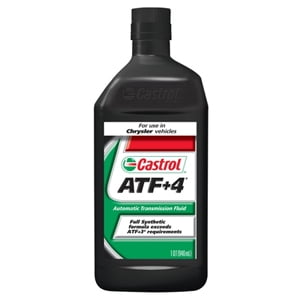

First, however, consult a transmission specialist if you’re still in a daze about what to choose. The best answer comes from the guidance given by your car manufacturer or company. Hence, making this oil a hassle to break down or oxidize quickly.Īll in all, the clear answer to choosing between the two is neither black nor white. On the other hand, synthetic fluids include amalgamating different chemical reactions. For example, a transmission fluid consists of crude oil while reshaping the hydrocarbons for the specifications of various transports. Therefore, it’s essential to know what these types of oil content are and how it makes them ideal for your choice of car. Synthetic & Traditional Transmission OilĪs mentioned above, the real deal lies in the formula of oil. You can always opt for ATF 3 transmission fluid if it calls for it. The execution largely depends upon the formula of the oil and how effectively it works on your behalf. In most cases, some conventional vehicles will also smoothly operate on automatic fluids. Additionally, it’s important to note that these cars cannot bear the burden of heavier oil due to their older versions, such as 75W to 140W. Hence, the right lube or oil can determine the health of your car for an extended period.

These two functions help maintain the stability and speed of your car. These cars require more attention because of their gear and clutch boxes.
ATF AUTOMATIC TRANSMISSION FLUID MANUAL
Manual Transmission FluidĪs the name suggests, manual transmission fluids work best for conventional vehicles and their manual system.

Also, this fluid performs the following functions for your car Some examples of this fluid are ATF +4 transmission fluid. However, it also serves the manual modern transmission cars.

In simpler words, a car that doesn’t require a clutch and gear. These fluids work best for cars that have an automatic transmission system. Therefore, distinguishing the suitable fluid is crucial for car owners to keep their cars of top-notch quality and ensure the machinery works seamlessly. Apart from this, you can also get familiar with synthetic transmission fluids and specialty fluids. In a general approach, there are two types of primary fluids mainly automatic transmission fluid and manual fluid. Down below are the types of fluids and their uses. There are various types of transmission fluids depending upon the model and structure of your car. Often people confuse the two terms motor oil and transmission fluids and don’t understand how essential it is to keep an eye on changing your fluids. Furthermore, this fluid plays a significant role in keeping your car in top shape for increased performance. Moreover, it can also act as a hydraulic fluid in various power steering systems covering significant automatic cars and transportation means. These fluids are optimized to meet the demands of transmissions, including brake band function, valve operation, torque converter, and act as an excellent lubricant.ĭo You Know Who Makes Carquest Oil? (Answer Explained It is often distinguished by the color red or green so that people can identify the difference between them and regular motor oils. This blog will help cover everything you need to know about transmission fluids, steering fluids, fluid levels, etc.Īutomatic Transmission Fluid is an oil used for transmissions in vehicles. Hence, this is where ATF fluids come into play. Therefore, looking after the health of engines and overall physical appearance is a duty we all need to attend to. The car in your garage is one of the most well-regarded engineering masterpieces globally. One of these modern inventions that demand attention is vehicles. Although scientists and engineers are always on the lookout to create sustainable innovations such as ATF fluid that’s enough to last a lifetime, playing our part has no harm whatsoever. Given the modern age of technological advancements, the need to maintain your technical gear to match the performance standard has become a crucial necessity.


 0 kommentar(er)
0 kommentar(er)
